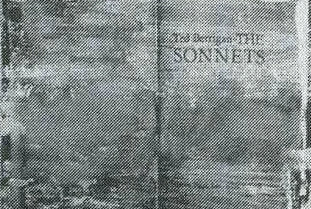 Wittgenstein with Georg Henrik von Wright
Wittgenstein with Georg Henrik von Wright
To pick up where I had to leave off on Wednesday —
It seems that Kreisel was on to something in his anecdote about Wittgenstein’s legacy-anxieties, especially whether his fate might resemble Longfellow’s.
When recounting a story from Kreisel it is perhaps always best to have a second source. He loved the cultivation of scandal, and no one is quite sure whether he (for instance) actually spent the night with Brigitte Bardot, as alleged. The fact that it seems entirely plausible, however, is a testament to his wide circle of glamorous friends and acquaintances.
Since I first heard Kreisel’s recollections years ago, I’ve been wishing there were more meat on those bones. In that pursuit, back in the nineties, I asked my husband Jussi to speak to his father, the Finnish philosopher and logician Oiva Ketonen, to see whether he or his close associate, Georg Henrik von Wright (co-executor of Wittgenstein’s literary estate), had any memories that could either confirm or cast doubt on what Kreisel had to say.
Von Wright (the “Wright” pronounced as in Richter scale) had succeeded Wittgenstein at Cambridge and often housed and cared for him during the waning days. My father-in-law (now deceased, like von Wright), spent some time in the von Wright home during this period.
Alas, neither of them could confirm the story, von Wright flatly telling Ketonen that it wasn’t true.
As it turns out, however, he was quite wrong, at least according to Wittgenstein’s close friend, British philosopher Elizabeth (G. E. M.) Anscombe, co-administrator with von Wright and Rush Rhees of Wittgenstein’s literary estate.
In her essay “On the Form of Wittgenstein's Writing,” she writes:
Wittgenstein once said to me in the course of a conversation that he had asked himself the question whether he was a second-rate artist. He added by way of illustration that Longfellow’s discovery of the Hiawatha metre must have seemed a great thing to him; and he said, or implied, that under the influence of such an impression it would have been difficult or impossible for Longfellow to perceive — what we could easily see — that he was a second-rate artist.
Anscombe’s brief anecdote, when combined with Kreisel’s, seems enough to confirm Wittgenstein’s anxieties. She goes on to say that “what corresponded to the Hiawatha metre [in Wittgenstein’s writing] was the use of separate ‘Bemerkungen.’ A Bemerkung might be a single short sentence, or it might be over a page long....”
These separate Bemerkungen are of course Wittgenstein’s famous “remarks.”
 Elizabeth Anscombe
Elizabeth AnscombeBut it also makes one wonder, somewhat tantalizingly: which stylistic tics (or other self-important bits of business) might be blinding poets to their irrelevance or just-plain awfulness today? And which of their contemporaries — poets, editors, critics — might be embracing them for exactly that shtick, and those gimmicks?
It’s enough to give a poet pause. The sort of pause Wittgenstein seems to have taken when he says, in the preface to the Philosophical Investigations:
I make [my remarks] public with doubtful feelings. It is not impossible that it should fall to the lot of this work, in its poverty and in the darkness of this time, to bring light into one brain or another — but of course it is not likely.
I should not like my writing to spare other people the trouble of thinking. But, if possible, to stimulate someone to thoughts of his own.
I should have liked to produce a good book. This has not come about, but the time is past in which I could improve it.
Cambridge,
January 1945.
Von Wright, in his “Biographical Sketch” of Wittgenstein, writes that “His life was a constant journey, and doubt was the moving force within him. He seldom looked back on his earlier positions, and when he did so it was usually to repudiate them.”
Such mutability (and I do think it is an ability rather than a form of intellectual weakness) should perhaps be considered in light of the puzzling fact that Wittgenstein selected a quote from Longfellow, his “second-rate artist,” as a possible motto for the Philosophical Investigations.
Marjorie Perloff, in her essay “But isn’t the same at least the same?”: Translatability in Wittgenstein, Duchamp, and Jacques Roubaud,” writes of “the almost comic vehemence of [his] extreme aesthetic judgments,” especially ironic in someone whose “impatience with aesthetic theory is legendary.”
She explains this as an expression of “le côté Viennoise of Wittgenstein — the social code of his time whereby those who are gebildet (cultured, well educated) took it to be incumbent upon them to pronounce on the given art work or performance or concert,” and goes on to expand enormously on our understanding of his proposition (collected in Culture and Value) that “One ought really to do philosophy only as a form of poetry.”
What Anscombe's memories make clear, I think, is that Wittgenstein did think of himself as an artist, as much as a philosopher, and found the model of an artist’s life peculiarly useful in thinking (or worrying) about his legacy.
More on this, I hope, sometime next week — Wittgenstein actually slightly misquotes Longfellow in his proposed motto for the Philosophical Investigations, and the stanza in question turns out to have hilarious echoes in the poetry of today.




























